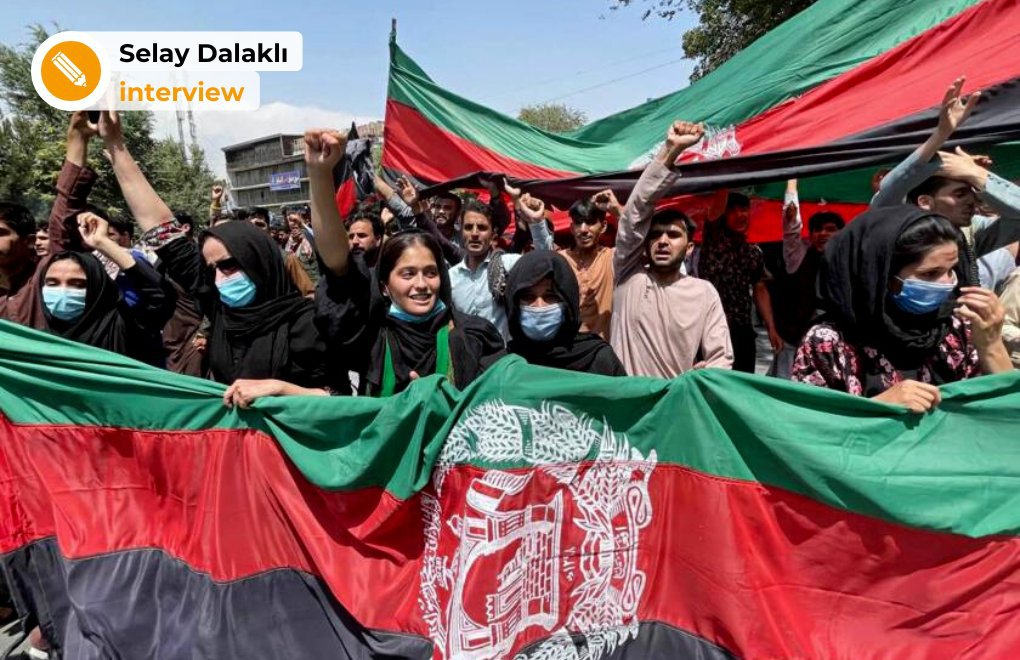* Photos: Murat Bayram, Selay Dalaklı
Click to read the article in Turkish
"The press is for the governed, not for governors."
It is with these words that journalist Aleksandra Sobczak from Poland's Gazeta Wyborcza newspaper begins her presentation on the editorial responses that could be given by editors to counter hate narratives, disinformation and propaganda in the media.
It was actually a quotation from Hugo Black, a judge of the US Supreme Court, during the court case in 1971 between the US and the New York Times, which reported on the "Pentagon Papers", or Report of the Office of the Secretary of Defense Vietnam Task Force, on its front page.
As for us, six editors from Turkey with bianet Editor-in-Chief Nazan Özcan as our coordinator, we hear these words during the "Editors for Trust" forum held in Montenegro's Njivice on October 13-16, 2021 and which gave us, over thirty editors from the Western Balkan countries and Turkey, the chance to discuss the role of the editors to restore the trust in the media.
Aiming to ensure exchange of experiences, the Editors' Forum was actually only one of the events organized as part of the "Resilience: Civil society action to reaffirm media freedom and counter disinformation and hateful propaganda in the Western Balkans and Turkey" project of the South East European Network for Professionalization of Media (SEENPM).
All these events have one aim in common: Revealing and analyzing the hate speech, disinformation and propaganda in Albania, Bosnia and Herzegovina, Kosovo, Montenegro, North Macedonia, Serbia and Turkey with various studies and reports and seeking solutions for them.
Participants of Editors' Forum from TurkeyCoordinator: Nazan Özcan (Editor-in-Chief, bianet) Editors: Pınar Tarcan (bianet); Selay Dalaklı (bianet); Murat Bayram (Botan International); Murat Bay (sendika.org); Gözde Çağrı Özköse (Mezopotamya Agency); Eren Topuz (Gazete Duvar) |
'They are the marginal now'
The first day of the forum... We, as editors from the Western Balkans and Turkey, sit around a rather long table.
Following brief introductory remarks by SEENPM Executive Director Tihomir Loza, we listen to the information shared by media research specialist Anida Sokol from Mediacentar Sarajevo about the findings of the research conducted as part of the Resilience project.
Reiterating that the aim of the Resilience project is to counter hate speech and to foster media literacy in the face of these hate narratives, Anida Sokol emphasizes that there are numerous examples of hate and propaganda media in both Western Balkans and Turkey.
According to Sokol, the hate and propaganda is not "marginal", but they are rather "systematically sustained."
That being the case, the living space of professional media is getting smaller and smaller; they are waging a bitter struggle with each passing day so that they can remain sustainable and keep their revenues.
"They are the marginal now," says Sokol in explaining the current situation of the professional media in the region.
Refugees, opposition, journalists: 'Threat'
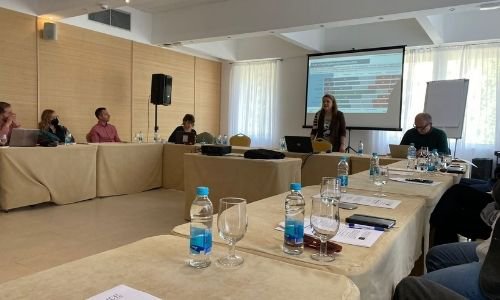
* Anida Sokol. (Photo: Murat Bayram)
Elaborating further on the hate narratives in the media based on research and reports, Sokol notes that there are three groups who are commonly subjected to these narratives in the Western Balkans and Turkey: Refugees/ migrants, political opposition and journalists.
When it comes to refugees and journalists, hate narratives start to get similar: "They are a threat."
For instance, when journalists report news critical of the government or when they dig deeper into the allegations of corruption and irregularities, they may be faced with a wide range of accusations, ranging from being "foreign mercenaries paid from outside" to "traitors."
What is worse is perhaps the following: There emerges a situation that we can summarize as "colleagues as targets."
According to Sokol, we need to remember something at this very point: By not condemning hate narratives in the media, the political power holders contribute to the normalization of these narratives.
But how do these narratives influence the public?
The Western Balkans and Turkey have something in common about this as well: When their groups are pictured in a positive light, people tend to trust the media; otherwise, there emerges distrust.
Noting that the majority of the participants were unaware of the existence or works of fact-checkers, media research specialist Anida Sokol says that people live in some kind of a "bubble", which means that they usually turn to the outlets close to them to get information.
Moreover, even though the distrust in the media is very high, the participants did or could still not name specific media outlets when they were asked which media outlets they did not trust specifically.
And when the disinformation comes from the state?

* Aleksandra Sobczak (Photo: Murat Bayram)
Following a discussion on the research results of the Resilience project so far, we watch the presentation of Aleksandra Sobczak, the Deputy Editor in Chief of the Warsaw-based Gazeta Wyborcza, on "Countering hate, disinformation and propaganda: Practical editorial responses."
From the public broadcasters and media outlets getting less and less independent and partial to an oil company that builds up a "media empire", what we hear from Sobczak is more than familiar for us.
One of the anecdotes shared by Sobczak is especially striking in that it shows how disinformation may come from the government (or the state).
In September 2021, Poland's Minister of Interior and Administration Mariusz Kamiński and Minister of National Defense Mariusz Błaszczak held a joint press conference. The main question of the conference was this: "He raped a cow and wanted to enter Poland?"
In addition to this hate speech and discrimination against refugees, this claim is also accompanied by a video.
However, as it was also reported by Wyborcza newspaper later, the video in question has nothing to do with refugees. On the contrary, it turned out that the video had been online on a porn website for years.
But how can we counter such hate narratives and disinformation in the media? What is the antidote to this?
Aleksandra Sobczak groups the answers to these questions in three: Data journalism, investigative journalism and cooperation.
According to Sobczak, while data journalism calms down and makes the reporting more rational, the possible cooperation between media outlets may help them to reach wider audiences with their news.
While investigative journalism is still very costly - especially in those countries where the critical press is under pressure -, it is still possible to support journalists by creating funds, just like Gazeta Wyborcza.
'Laws are like sausages, it is better...'

* Pınar Tarcan. (Photo: Murad Bay)
As the forum's target countries are the Western Balkans and Turkey, the new and old challenges to editorial independence are inevitably talked about and discussed during the presentations.
In the second session of the first day of the forum, we now listen to bianet's foreign news, minority rights and climate crisis editor Pınar Tarcan, who speaks about "reporting on an authoritarian regime."
Starting her speech with a quotation from Germany's first chancellor Otto von Bismarck, who once said, "Laws are like sausages, it is better not to see them being made," Tarcan strikingly puts forward the current dimensions of the violations of freedom of expression and press in Turkey based on BİA Media Monitoring Reports of bianet since the year 2001.
CLICK - Media Monitoring Database
With a specific reference to the access block imposed on bianet's news report titled "Police officer who filmed the shooting of Dilek Doğan: 'Special Operations officer shot her by mistake'", Tarcan gives examples of the intervention of judicial bodies into the critical media in Turkey.
The threats, violence and attacks faced by journalists are also among the information shared by Tarcan about Turkey in this context...
At the discussion part at the end of the session on obstacles to editorial independence, we hear from Semir Hambo, the Chief Editor of klix.ba news website, that they have hired a person to monitor user comments.
This step taken by the Bosnia-Herzegovina-based website looks like an effective way to counter hate speech and discrimination in the media, especially on social media websites and comments under the news.
Women's presence: 'Worse than expected'
At a meeting where journalists exchange opinions and experiences about hate narratives, propaganda and disinformation in the media, one of the issues discussed is naturally gender. At the "Editors for Trust" forum, we are now discussing the "media gender issues".
We first listen to Larisa Halilović, the team leader of the "Media for All" project of the British Council in the Western Balkans.
Addressing us via videoconference, Halilović also shares with us the results of a study carried out in the region regarding the experiences of women in the media. The related results show that the picture in the Western Balkans and what we have in Turkey are once again similar.
Stressing that the results are "worse than expected", Halilović says that while 70 percent of the news outlets in the region are owned by men, 30 percent are owned by women. While this gap is somewhat narrower on lower management levels (60 percent men, 40 percent women), it is seen that 55 percent of the editors are men and 45 percent of them are women.
But what about women's representation in the news?
The research results show that around one third of the news are about women while women are objectified in one fifth of the reports. Moreover, only 7 percent of the news specifically deals with gender rights.
As noted by Halilović, the Media for All's scope is not limited to reporting. It also provides grants, training and mentoring for women journalists.
For instance, as part of the pilot mentoring programme which ran from February 24 to April 14, 2021, mentees from six countries were matched with experienced women journalists from the Western Balkans based on their needs and priorities for development. Over a six-week period, they met their mentors weekly to work on their personal and professional development goals, exchange knowledge and skills and to explore mentorship.
A familiar picture: Men discuss abortion
After Larisa Halilović, we are now listening to journalist Aleksandra Sobczak again. This time, she is talking about what they do to make women more visible in the news in Poland, where the İstanbul Convention has long been opened to debate, abortion has been banned and the rights of LGBTI+s are coming under more and more pressure.
Hearing that Sobczak criticizes the discussions on abortion being held with all-male guests on TV, we cannot help thinking that how similar a picture we have in Turkey. According to Sobczak, there are three ways to make women more visible in the news: Taking a gender equality-based approach in picking the pictures, refusing to follow up the events attended only by men, refusing to publish pieces where only men are cited as experts.
Following Sobczak's recommendations, we listen to Ivana Erić from Bosnia Herzegovina's N1 TV, who once again reminds us how important having a powerful women's movement in a country is.
Criticizing the lack of solidarity in journalism, Erić cites a recent example from a meeting in Sarajevo a few weeks ago, where a woman journalist was reportedly attacked and taken out of the conference hall. Erić asks us: "Why did only a single person leave the conference hall [in protest]? What would happen in your country if something like that happened?"
While most of the editors from the Western Balkans at our meeting hall say that they have a similar situation in their country, we, as editors from Turkey, agree that the reaction would be - rightfully - harsher and more visible if a similar incident happened here in Turkey.
From constructive journalism to peace journalism

* Selay Dalaklı. (Photo: Murat Bayram)
The second day of the forum... We are walking towards the hall, getting some fresh air and looking around the green mountains of Montenegro, a country with a population of slightly over 600 thousand.
In the meantime, we - rather inevitably - ask ourselves: All these forests, this sea, this green nature... Would they be still here today if they were in Turkey? Or would they be already sacrificed to a "crazy project"? I think all of us know the answer in one way or another...
The second day of the forum starts with the presentation of Aida Sofić Salihbegović from the Bosnian/ Croatian/ Serbian Department of Deutsche Welle (DW) Bonn office on constructive journalism.
Constructive journalism is a rather new concept and the DW is one of the pioneers in this field. Its main characteristic is that it approaches existing problems from a solution-oriented perspective and prioritizes dialogue and discussion in society, rather than polarization.
We, as bianet, contribute to this discussion by talking about peace journalism in Turkey. As indicated in bianet's Peace Journalism Handbook from the year 2016, "peace journalism is news reporting of any sort of tension, conflict or multiple hostilities without inciting violence and towards establishing and sustaining just-peace within the framework of a 'the other'-centered ethics," which makes these two methods of journalism, constructive journalism and peace journalism, quite similar to one another.
Moreover, bianet's experience of peace journalism gives an idea about how constructive journalism can be possibly practiced in a context where rights and freedoms are faced with mounting pressure.
CLICK - From constructive journalism to peace journalism
A short trip after the forum

* Photos: Selay Dalaklı - bianet
The second day of the "Editors for Trust" forum organized by the SEENPM as part of the Resilience Project ends with the presentation of Balkan Investigative Reporting Network (BIRN) Editor-in-Chief Marija Ristić, who talked about "editorial cross-border collaboration."
And it is now time to make a short trip to Kotor. With slightly over 13 thousand residents, this coastal town has been on the UNESCO World Heritage List since 1979. When we enter the old town of Kotor, we immediately understand the reason for listing the town as such.
We are now strolling through the narrow streets and rather large squares of Kotor old town, which is full of history and nature. In the meantime, we are thinking about the problems expressed by editors from various Western Balkan countries over the past two days. We cannot help asking ourselves whether Turkey will also be a country which is more peaceful and secure for journalists and journalism one day.
We hope that it will...
About the Resilience projectAs part of the "RESILIENCE: Civil society action to reaffirm media freedom and counter disinformation and hateful propaganda in the Western Balkans and Turkey" project, media development organizations in the Western Balkans have joined forces with the IPS Communication Foundation/bianet. The three-year project is coordinated by the South East European Network for Professionalization of Media (SEENPM), a network of media development organizations in Central and South East Europe, and implemented in partnership with: Albanian Media Institute in Tirana, Foundation 'Mediacentar' in Sarajevo, Kosovo 2.0 in Pristina, Montenegro Media Institute in Podgorica, Macedonian Institute for Media in Skopje, Novi Sad School of Journalism in Novi Sad, Peace Institute in Ljubljana, and bianet in Istanbul. The project is funded by the European Union (EU). |
(SD)




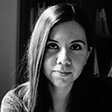

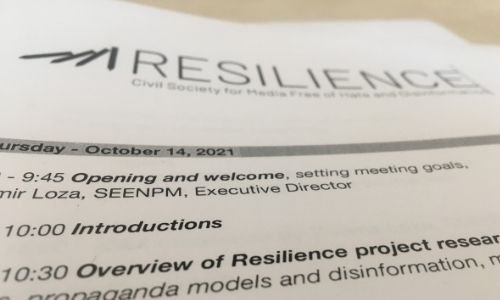

.jpg)
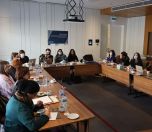
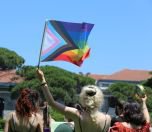
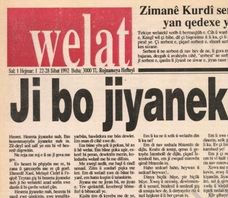
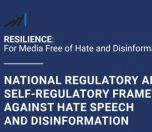
as.jpg)
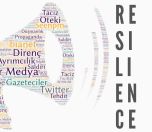
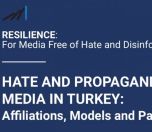
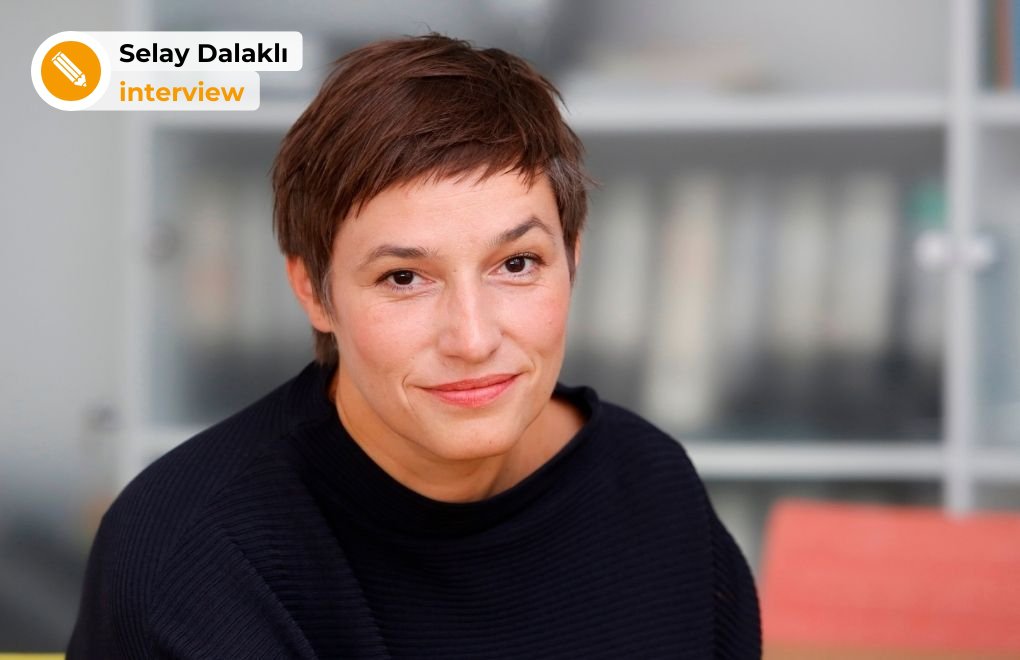
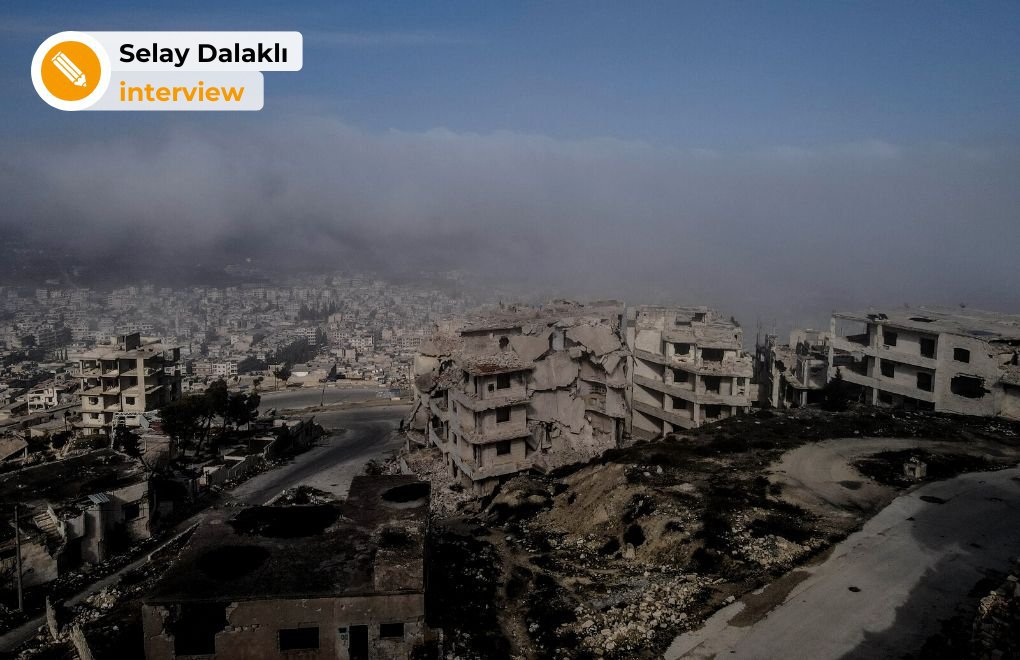
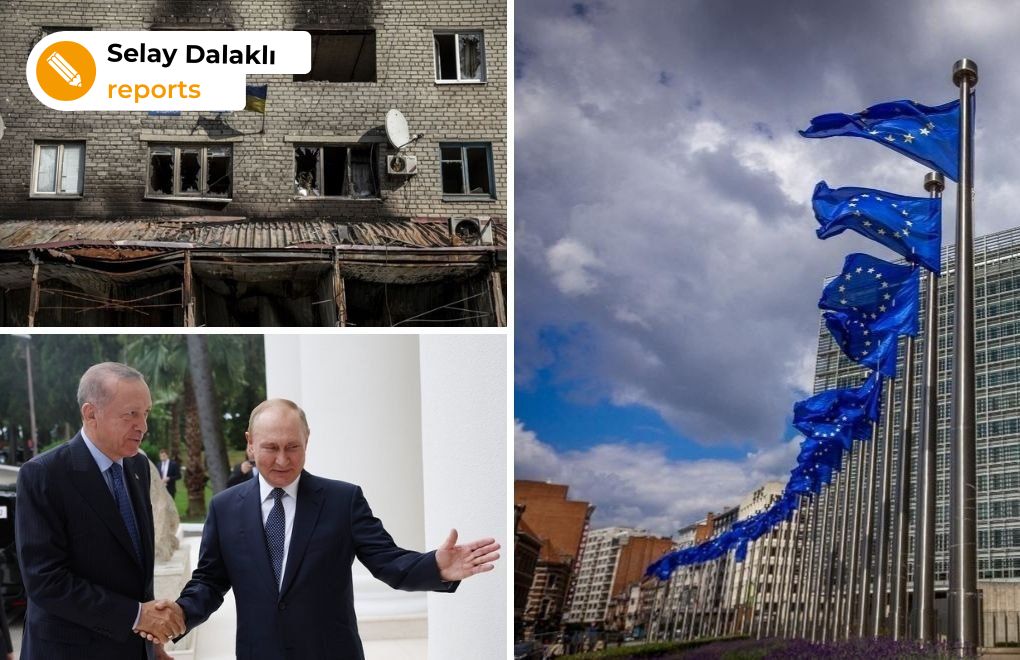
.jpg)
